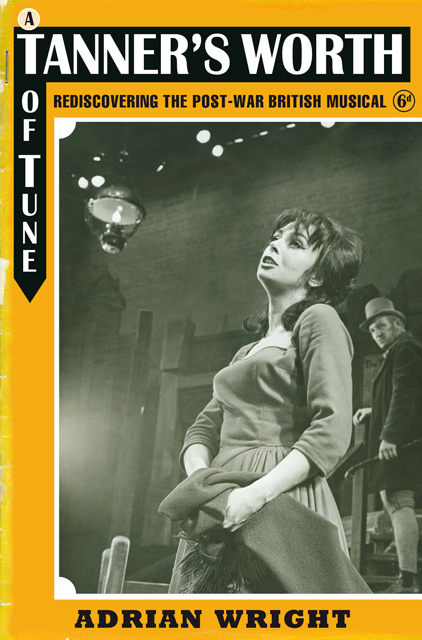Book contents
- Frontmatter
- Dedication
- Contents
- List of Illustrations
- Acknowledgements
- 1 Before and After: Identifying the British Musical
- 2 Delusions of Grandeur: Ivor Novello
- 3 Mastering Operetta: Noel Coward
- 4 Pastiche and Esoteric: Sandy Wilson
- 5 Resounding Tinkles: The plein air Musicals of Julian Slade and Dorothy Reynolds, Geoffrey Wright and Donald Swann
- 6 Away from Home: Adopted British Musicals
- 7 Community Singing: Realism and the British Verismo Musical
- 8 Specifically British: David Heneker, Monty Norman, Julian More and Wolf Mankowitz
- 9 To Whom it May Concern: The British Biomusical
- 10 Fin de Partie: John Osborne, Lionel Bart and After
- Appendix 1 Original Productions of British Musicals
- Appendix 2 Adaptations from Other Works, 1946–78
- Select Bibliography
- Index of Musical Works
- General Index
4 - Pastiche and Esoteric: Sandy Wilson
Published online by Cambridge University Press: 01 March 2023
- Frontmatter
- Dedication
- Contents
- List of Illustrations
- Acknowledgements
- 1 Before and After: Identifying the British Musical
- 2 Delusions of Grandeur: Ivor Novello
- 3 Mastering Operetta: Noel Coward
- 4 Pastiche and Esoteric: Sandy Wilson
- 5 Resounding Tinkles: The plein air Musicals of Julian Slade and Dorothy Reynolds, Geoffrey Wright and Donald Swann
- 6 Away from Home: Adopted British Musicals
- 7 Community Singing: Realism and the British Verismo Musical
- 8 Specifically British: David Heneker, Monty Norman, Julian More and Wolf Mankowitz
- 9 To Whom it May Concern: The British Biomusical
- 10 Fin de Partie: John Osborne, Lionel Bart and After
- Appendix 1 Original Productions of British Musicals
- Appendix 2 Adaptations from Other Works, 1946–78
- Select Bibliography
- Index of Musical Works
- General Index
Summary
Even in 1956 the shadow cast across British musical theatre by the death of Novello was long. Under the headline ‘Genius of Novello’ Plays and Players warned that ‘Recently, it is true, there has been a movement afoot to elevate the musical show into a “significant modern art-form”, but this can have little hope of success. The Public would never accept long-faced Musicals, and rightly so’ . Here, at least, Plays and Players had it wrong. Twenty years later, musicals started trying to be as long-faced as possible. The journal continued:
No one appreciated the need for colour and romance in musicals more than Ivor Novello. He knew that even the most serious playgoer enjoyed an occasional change, an escape from his own London, Bradford or Worthing environment. And Ivor offered the ideal form of escape, the Ruritanian musical.
There was less sheer vitality in Ivor’s musicals than in the popular American product of today, and less noise for noise’s sake. His characters were unreal, their situations unlikely, and their sentimentality occasionally on the ripe side. But these musicals had glamour and an irresistible magic of their own. They also had lilting tunes that required singing, not mere bawling – tunes that lingered obstinately in the mind years after one had seen the show.
British composers who complain today that they cannot get a fair hearing might look back on Ivor’s successes and learn some valuable lessons. Their own shows often have a brilliant type of university wit, but university wit is generally accompanied by undergraduate cynicism. What they would learn from the books and scores of Careless Rapture, Perchance to Dream and King’s Rhapsody is that enchantment is all. And until they have learned this lesson they should not try to compete with their streamlined American rivals.
The first major new British musical theatre writer to emerge from the Novello shadow was Alexander [Sandy] Galbraith Wilson, so great an admirer of Novello that he would go on to write one of the best books about him. Surprisingly, there is not a shred of evidence that Novello exercised any influence over Wilson’s work.
- Type
- Chapter
- Information
- A Tanner's Worth of TuneRediscovering the Post-War British Musical, pp. 70 - 94Publisher: Boydell & BrewerPrint publication year: 2010



